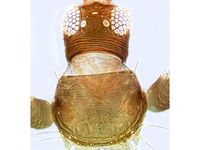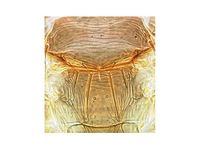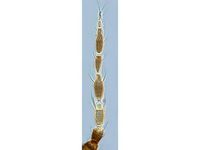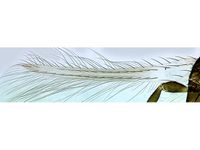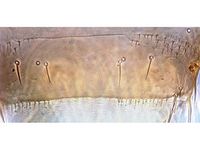Megalurothrips sjostedti
| Literature database |
|---|
| 56 articles sorted by: |
| • year (recent ones first) |
| • research topics |
| • countries/regions |
| • host plants |
| • list of natural enemies |
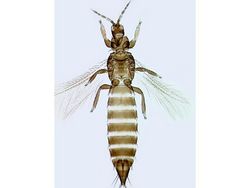
Author(s): Laurence Mound, ANIC, CSIRO
Source: PaDIL
Megalurothrips sjostedti (Trybom, 1908) - (bean flower thrips)
This thrips is the most important pest of cowpeas in Africa. It is widely distributed accross Sub-Saharan Africa and feeds on flowers and buds of legumes like cowpea, beans or pigeonpeas, causing their destruction, abscission or the malformation of pods. The resulting yield losses often exceed 50% and nearly total crop losses have been reported on cowpea during outbreaks. Pesticide use is recommended, but is not affordable to many farmers.
During the dry season, in the absence of cowpea plants, M. sjostedti survives and breeds on a wide range of alternative leguminous plants. After planting of cowpeas has started, thrips migrate to the fields and multiply rapidly in the absence of efficient natural enemies (Tamò et al., 1993). The ability of cowpea plants to compensate for the loss of flowers is finally overwhelmed by high thrips numbers.
| Vernacular names | |
|---|---|
| • English: | bean flower thrips flower bud thrips legume flower thrips |
| • Français: | trips des bourgeons de fleurs |
- Other images of Megalurothrips sjostedti (PaDIL - click to enlarge)
